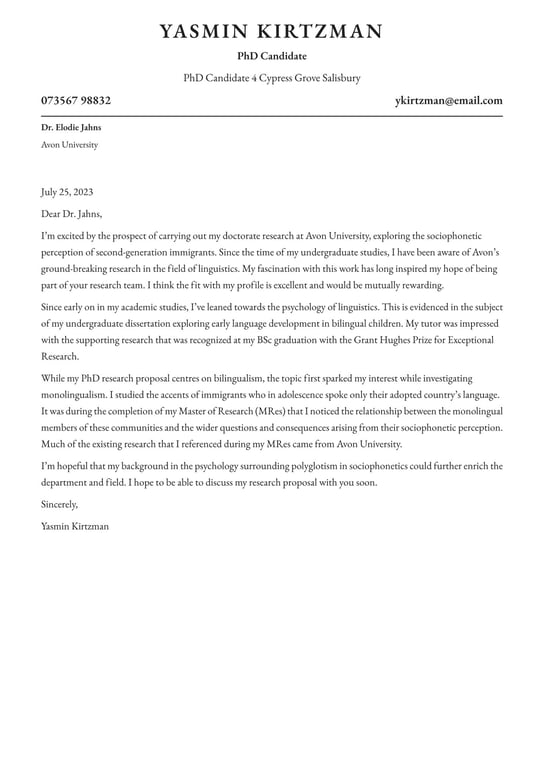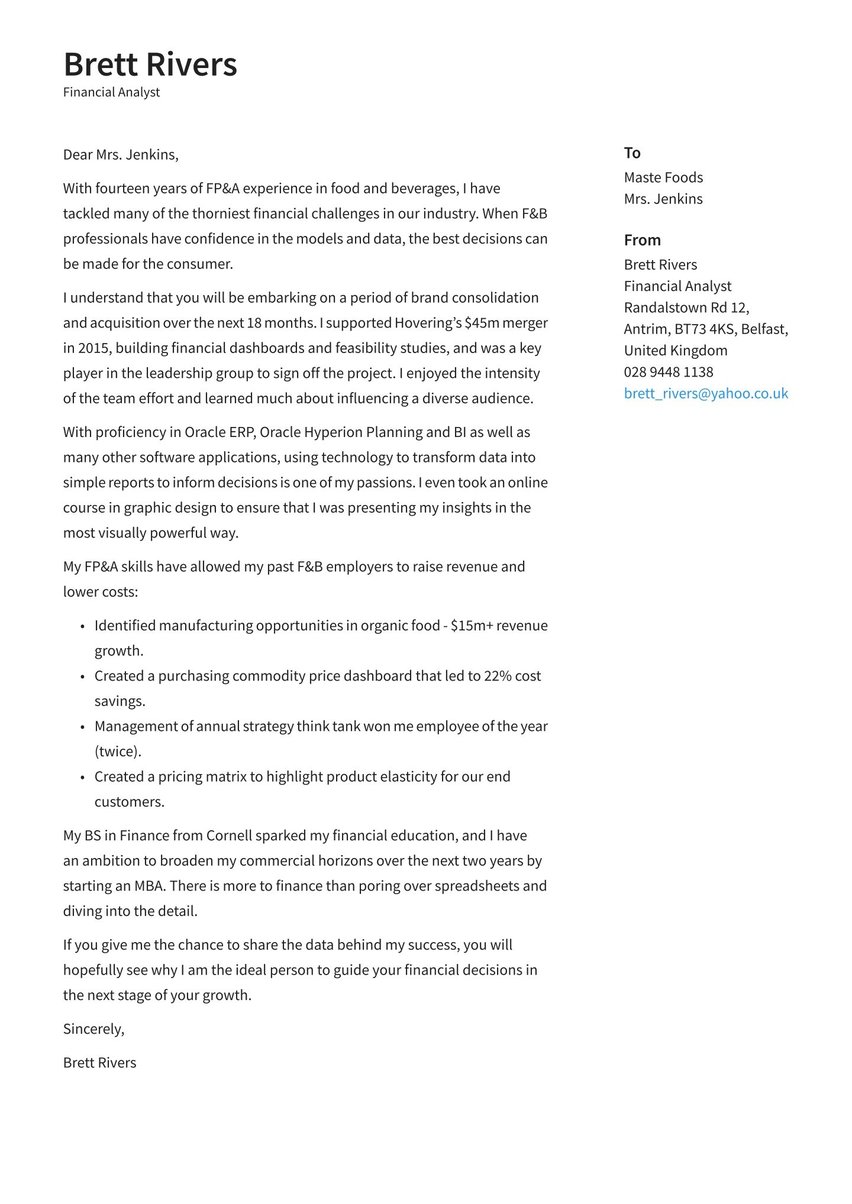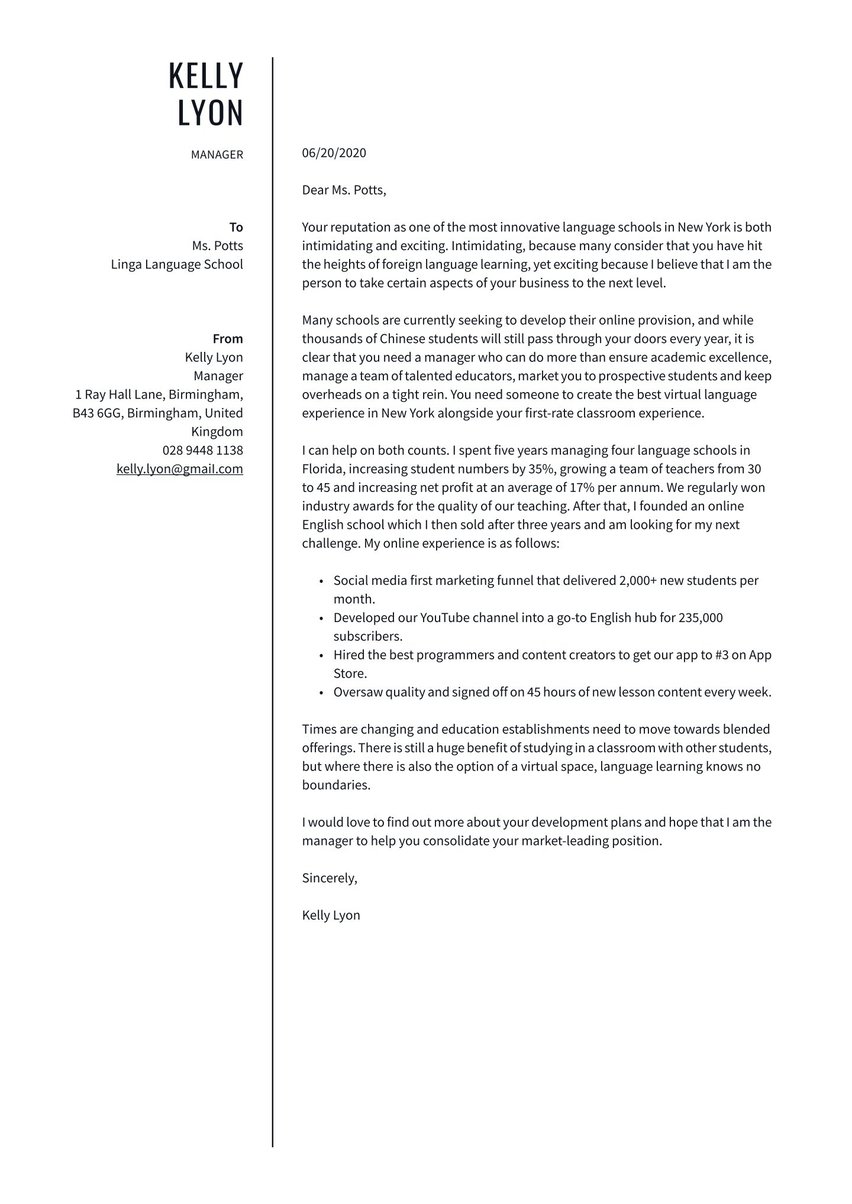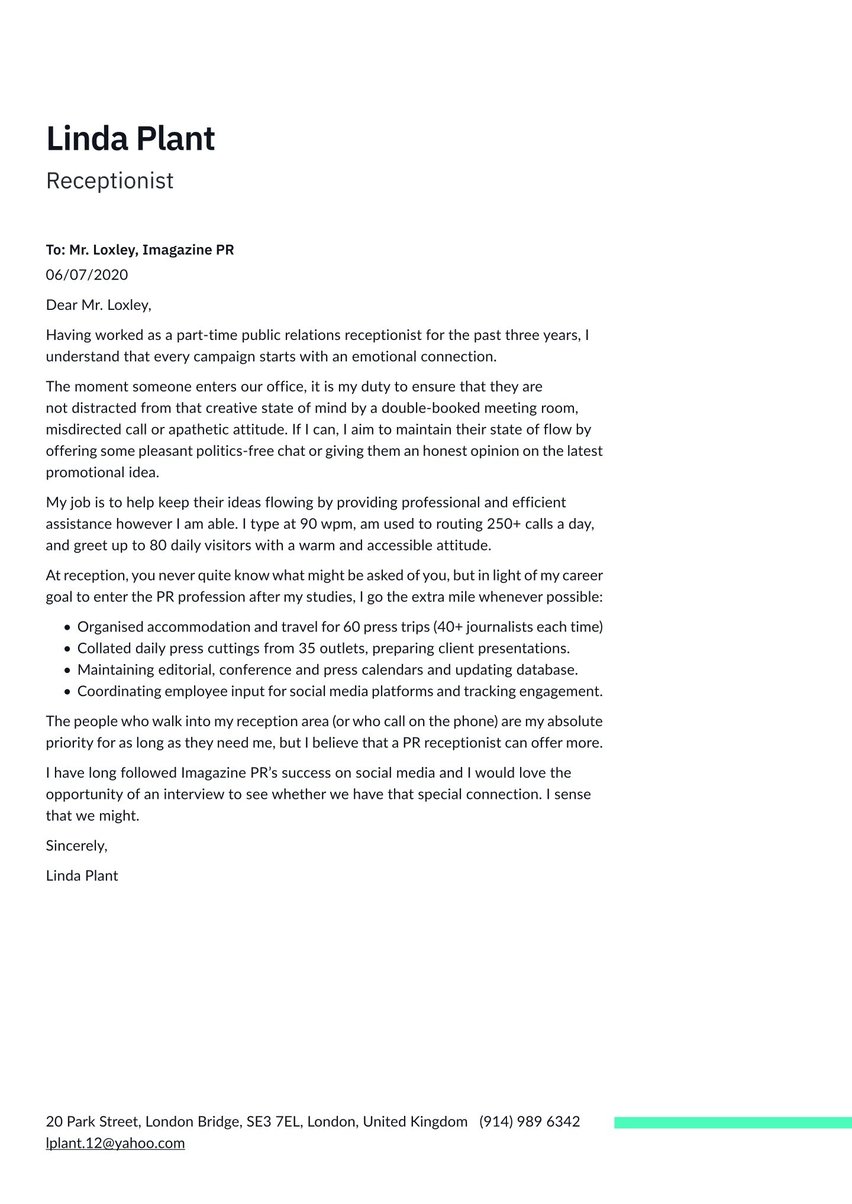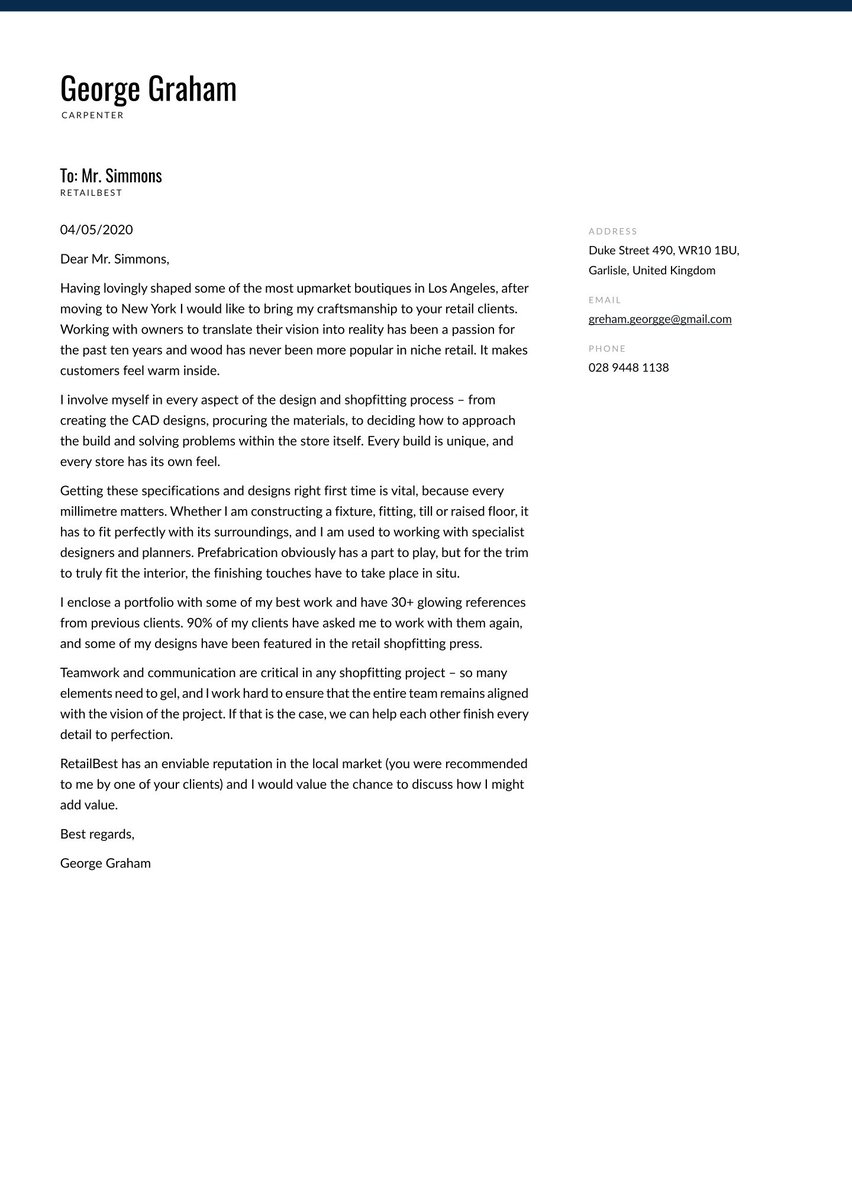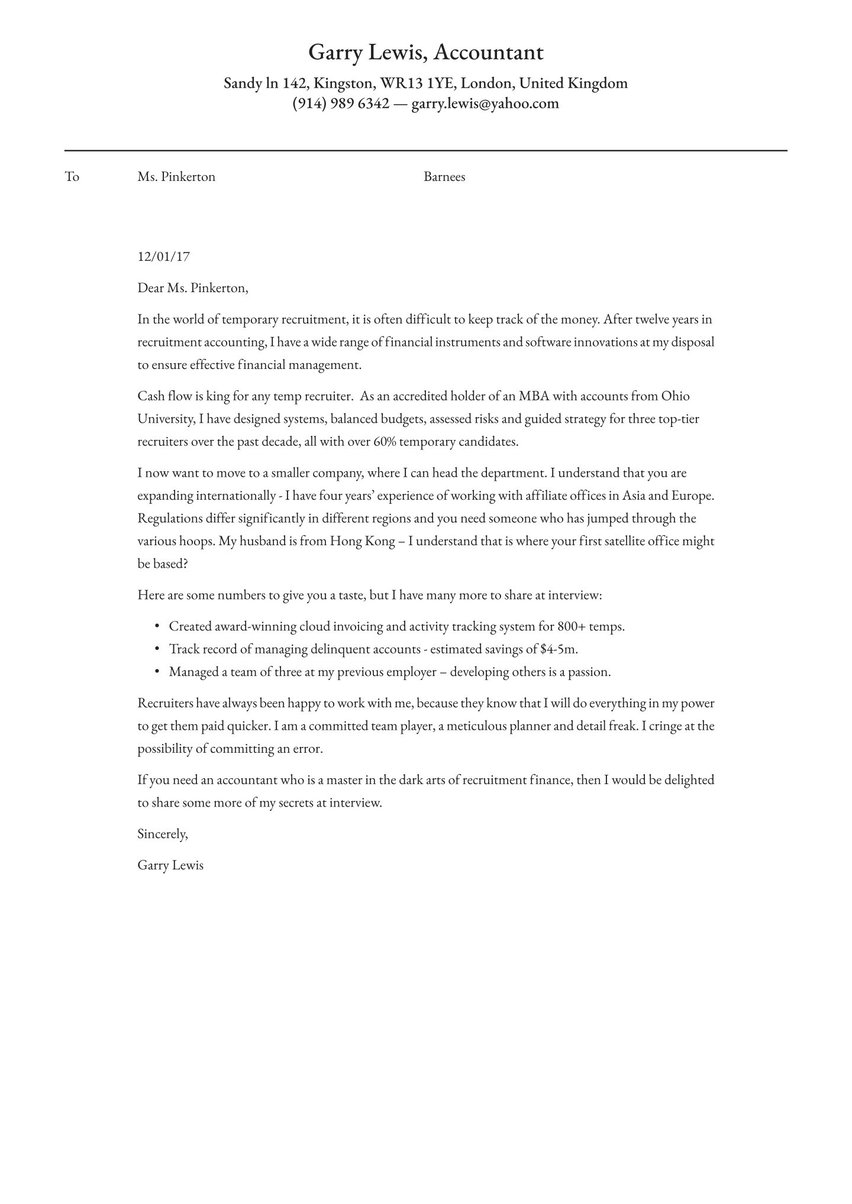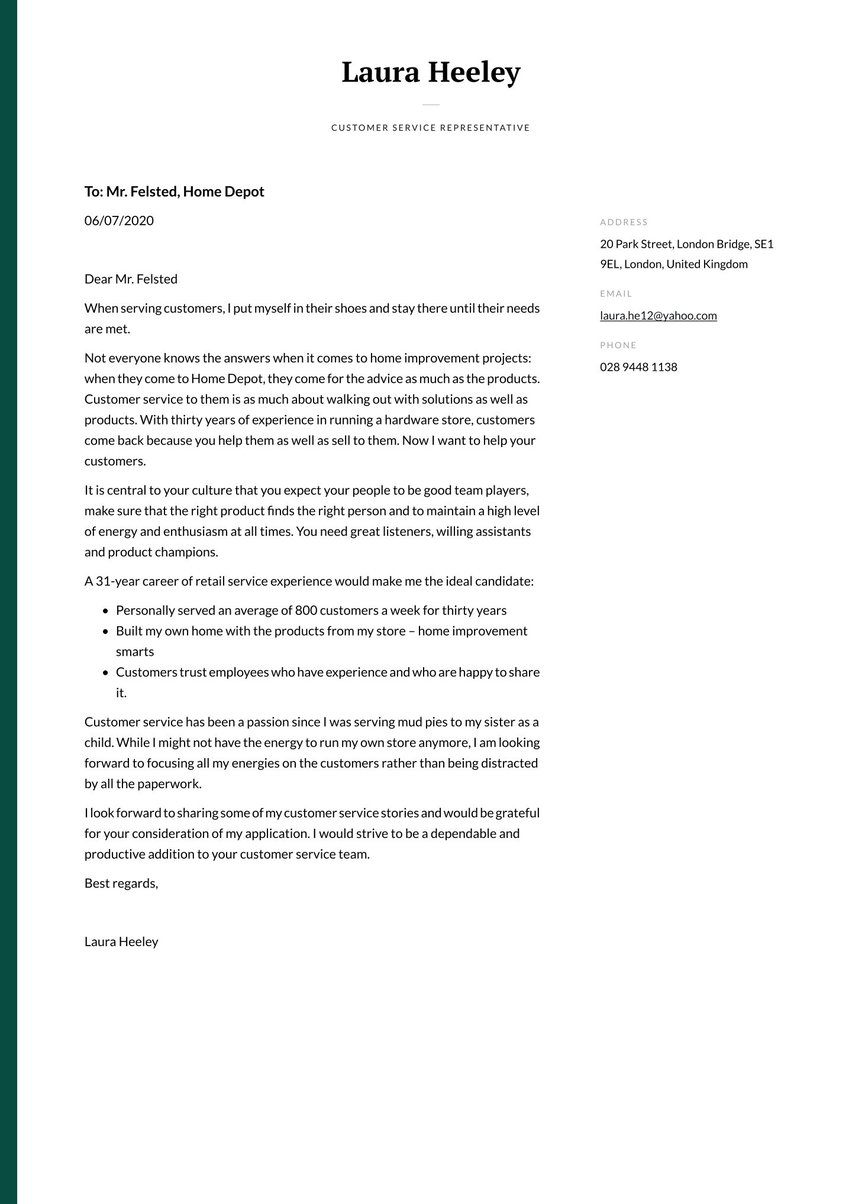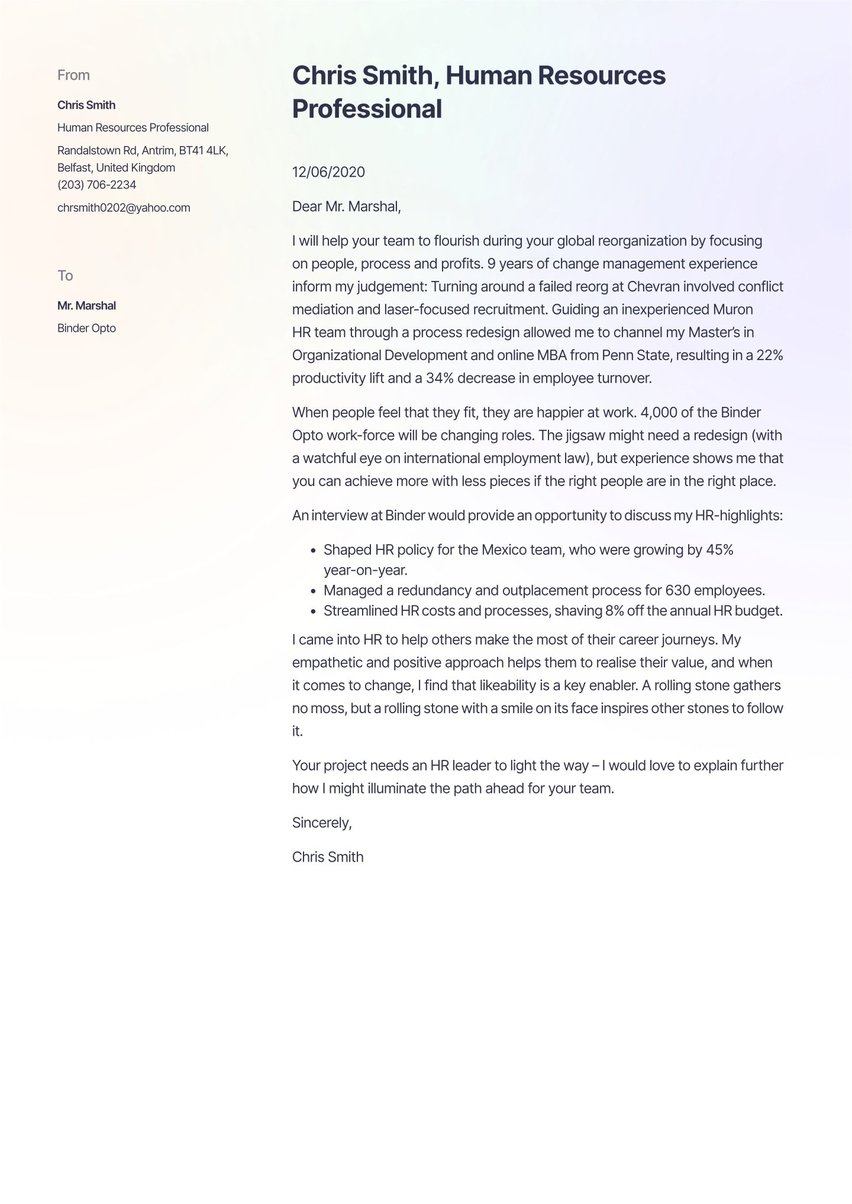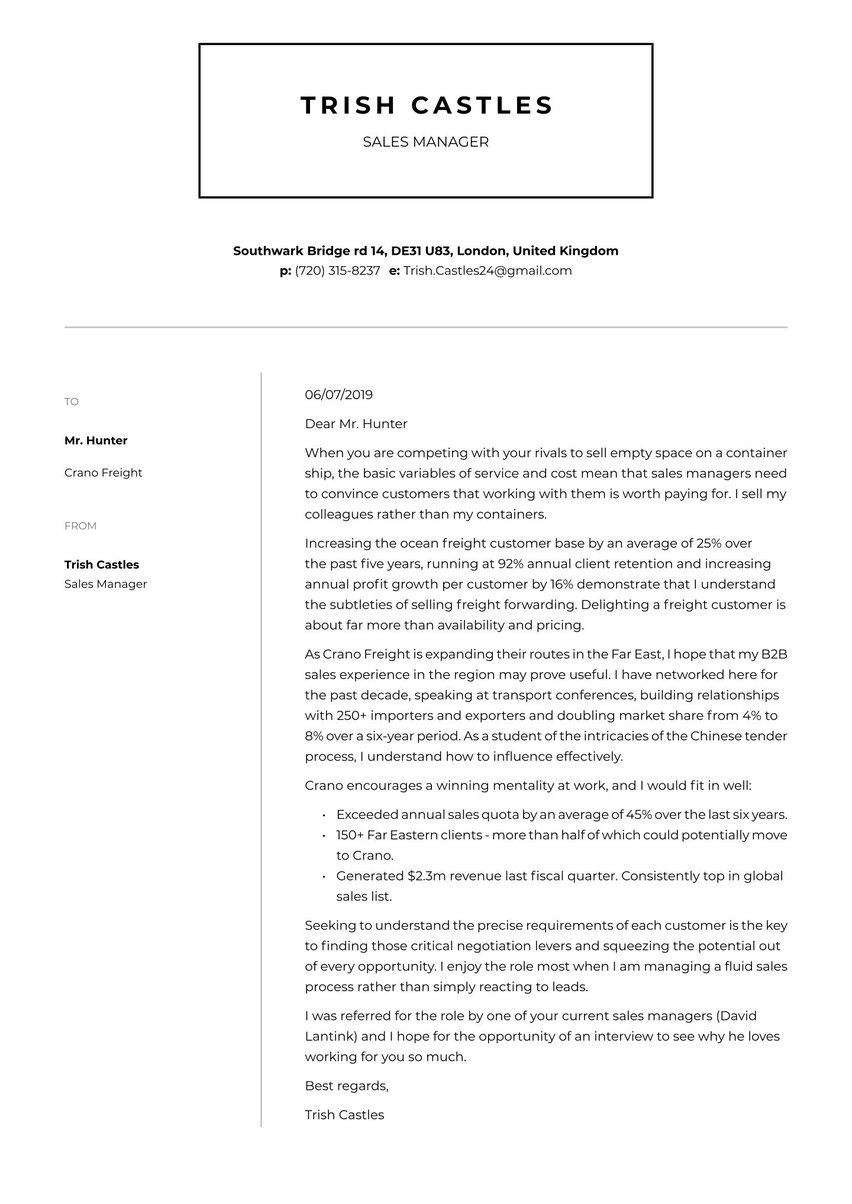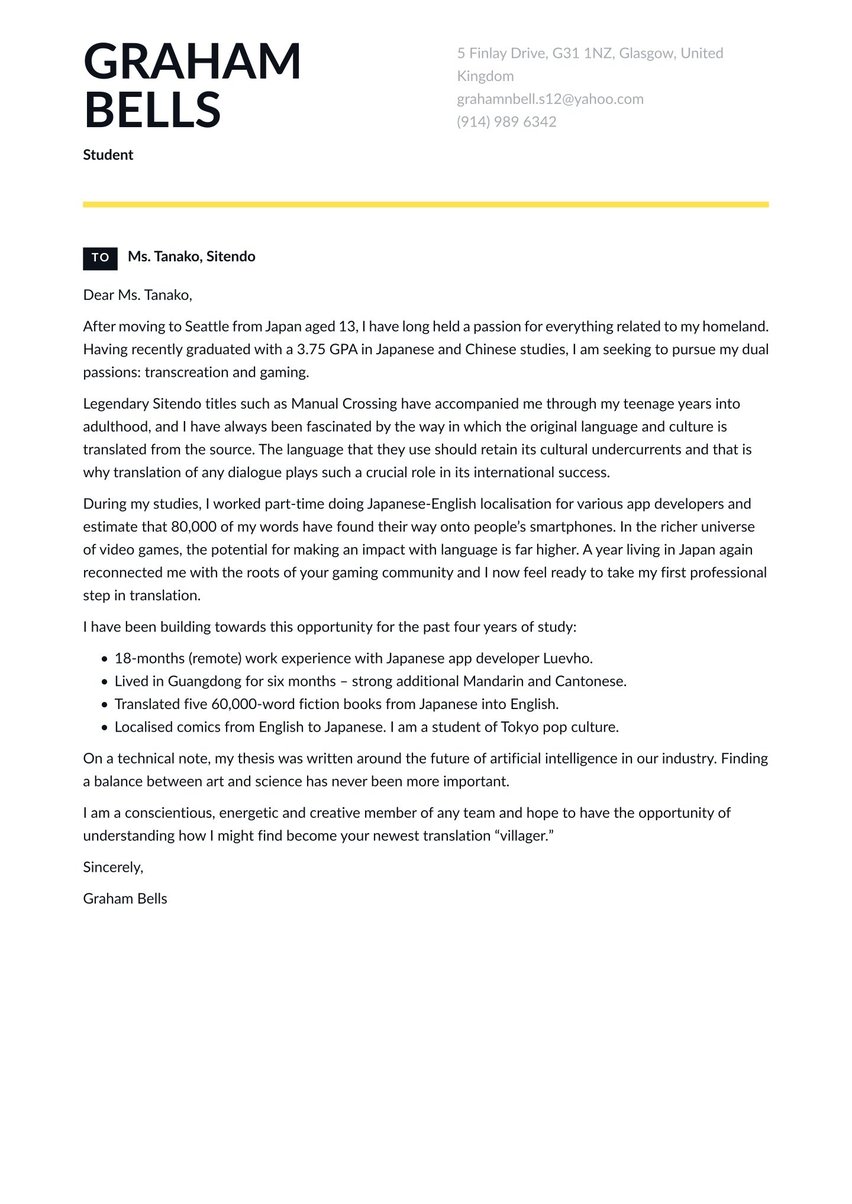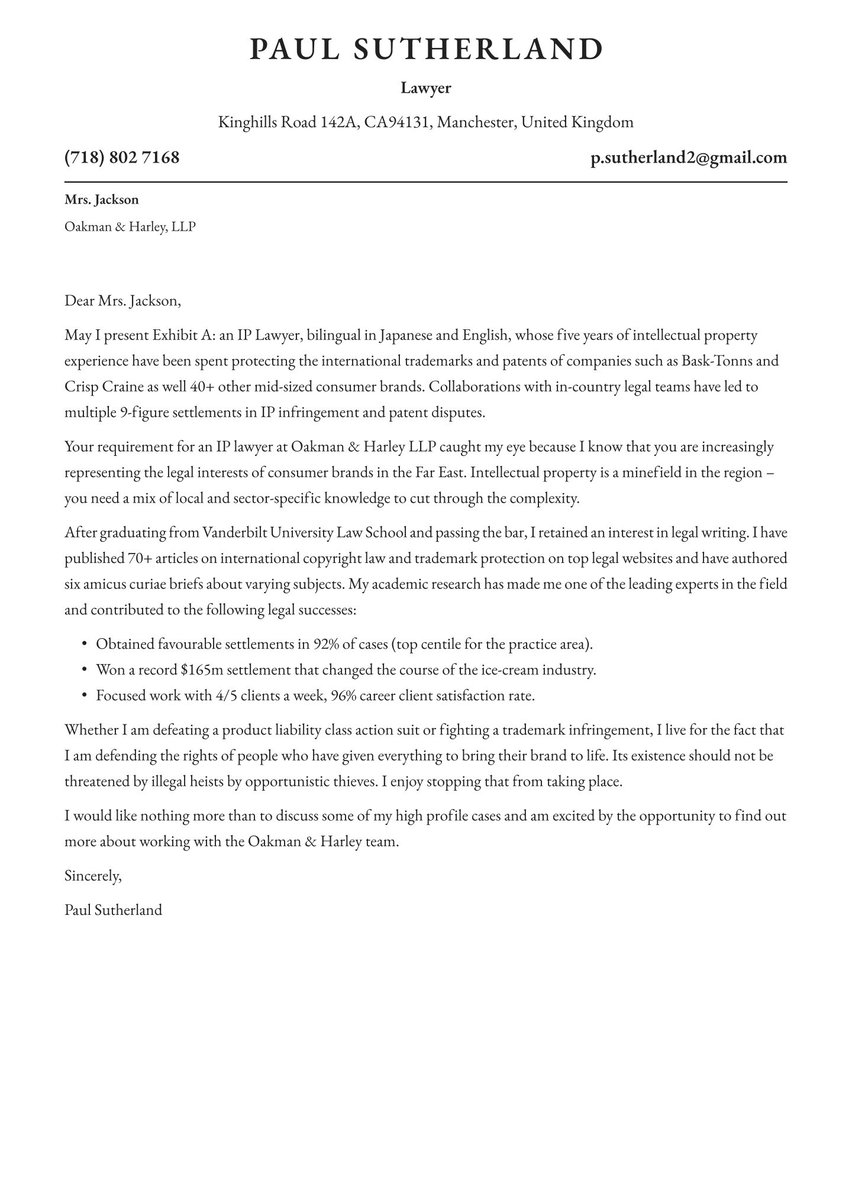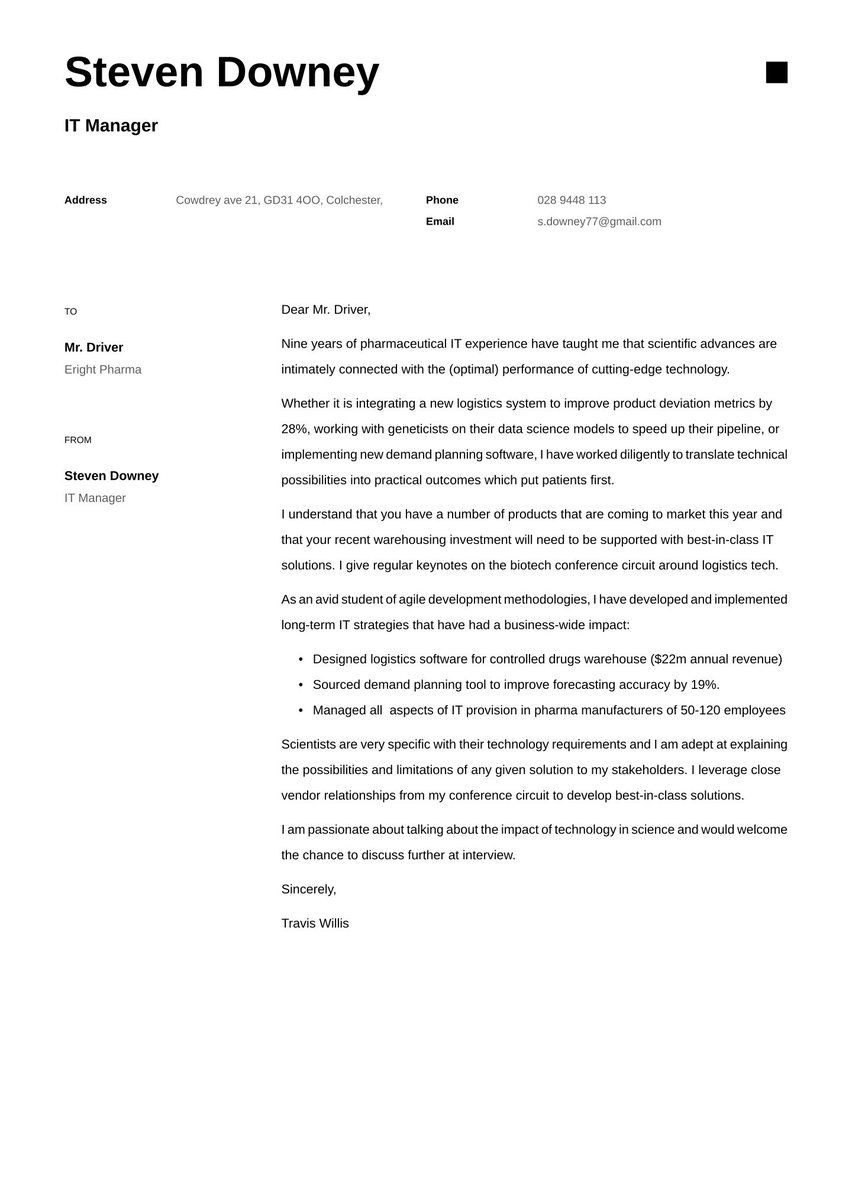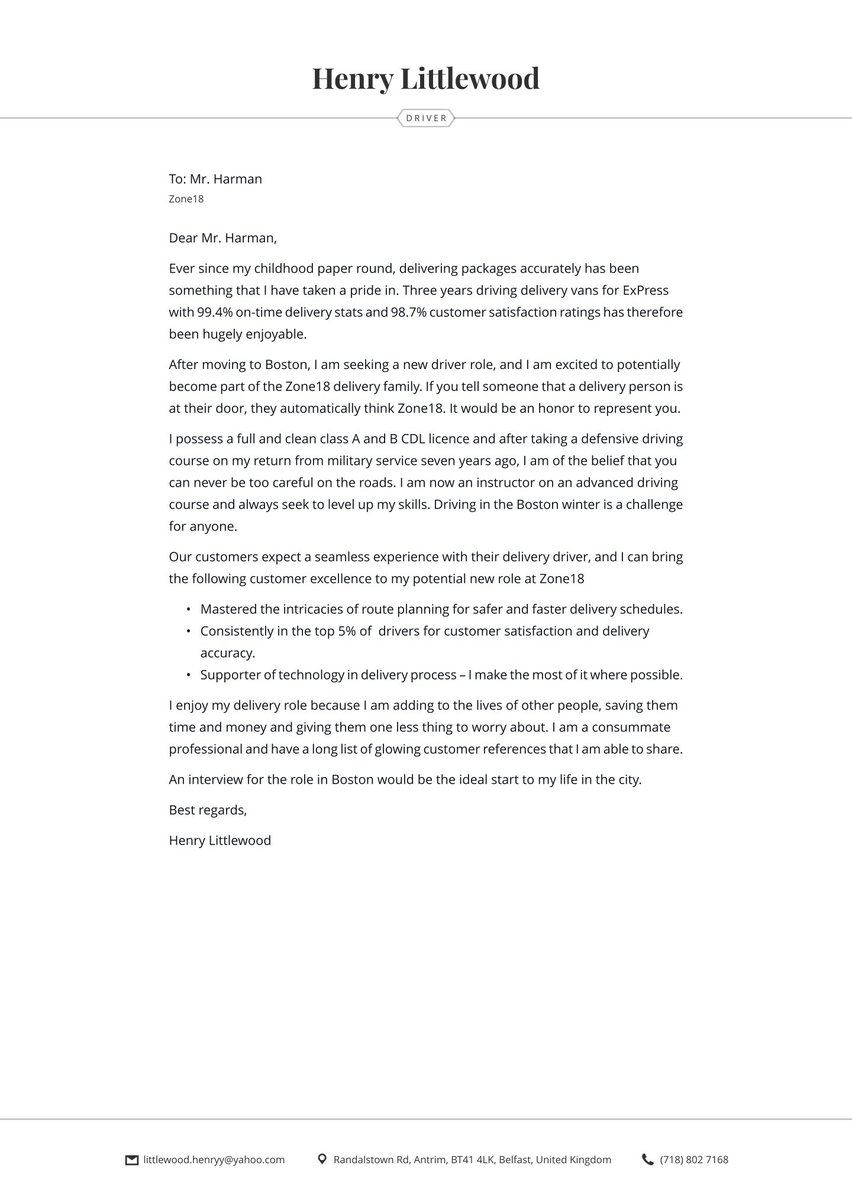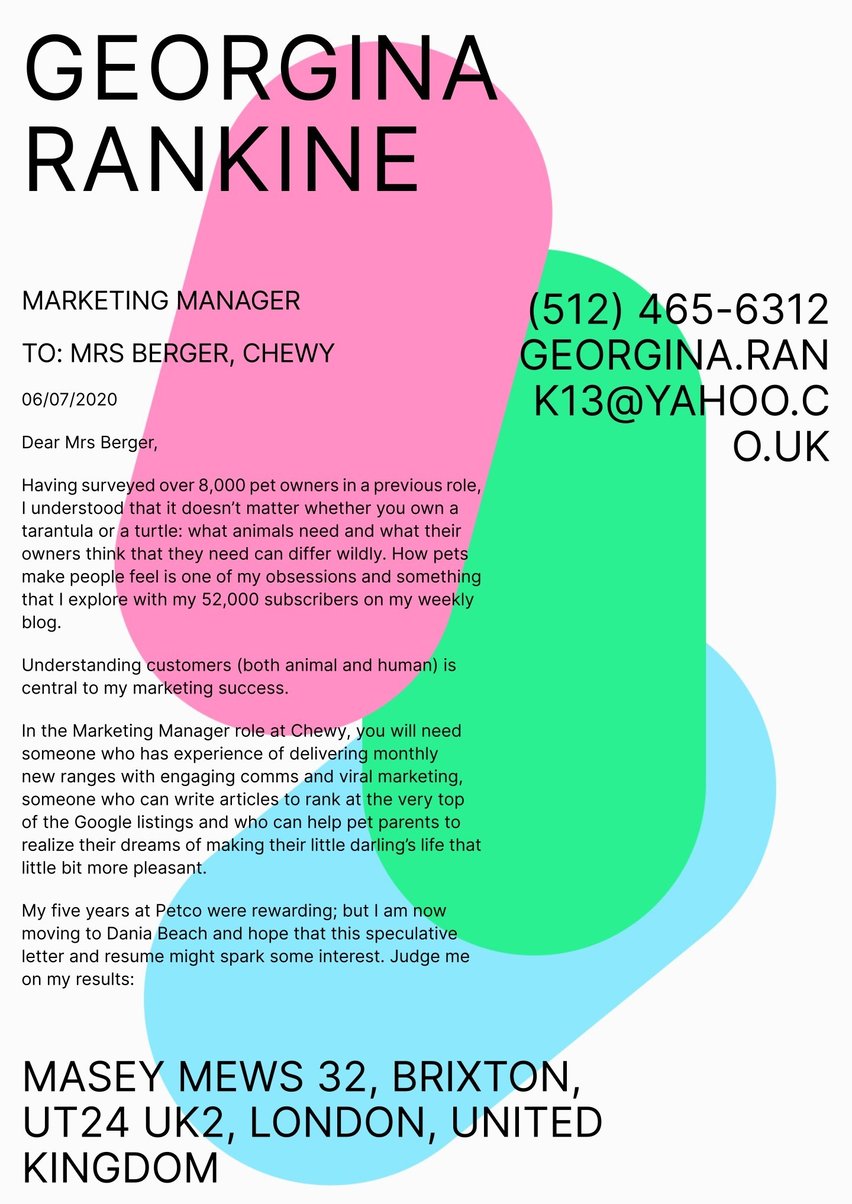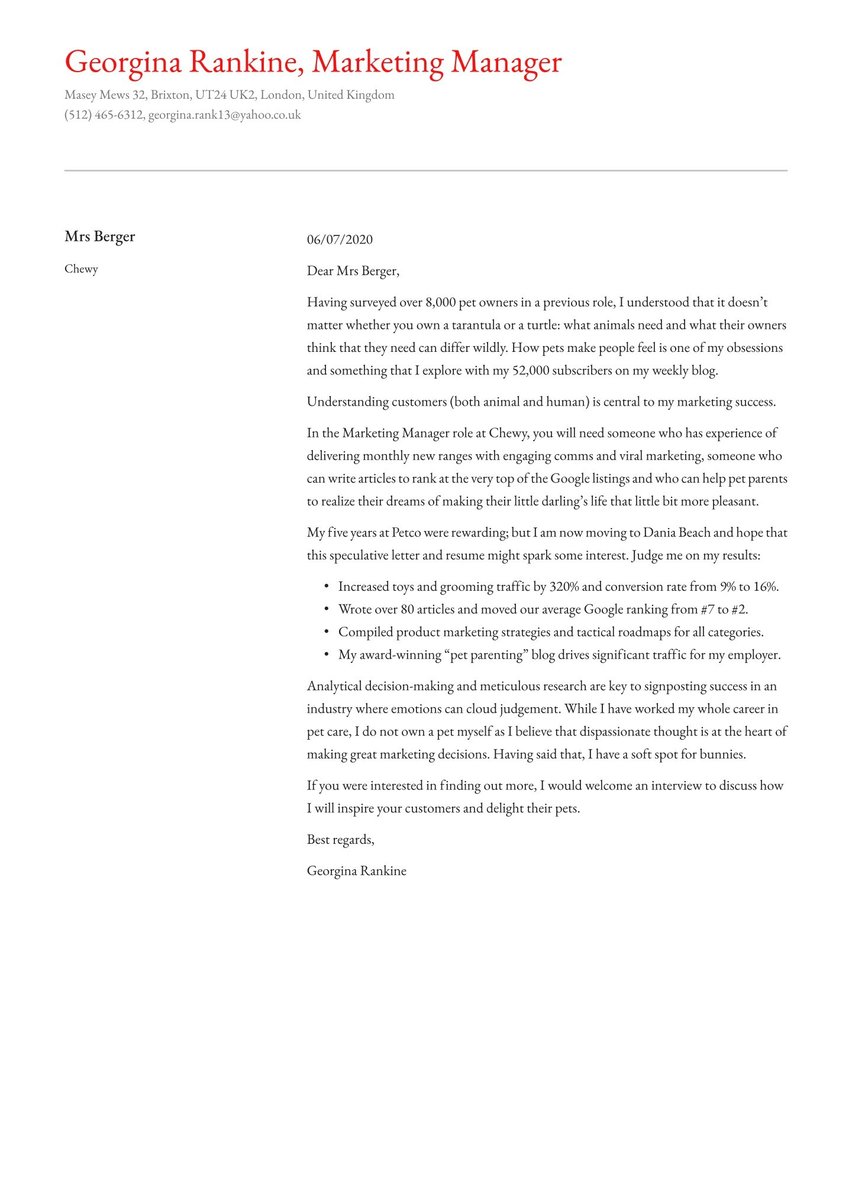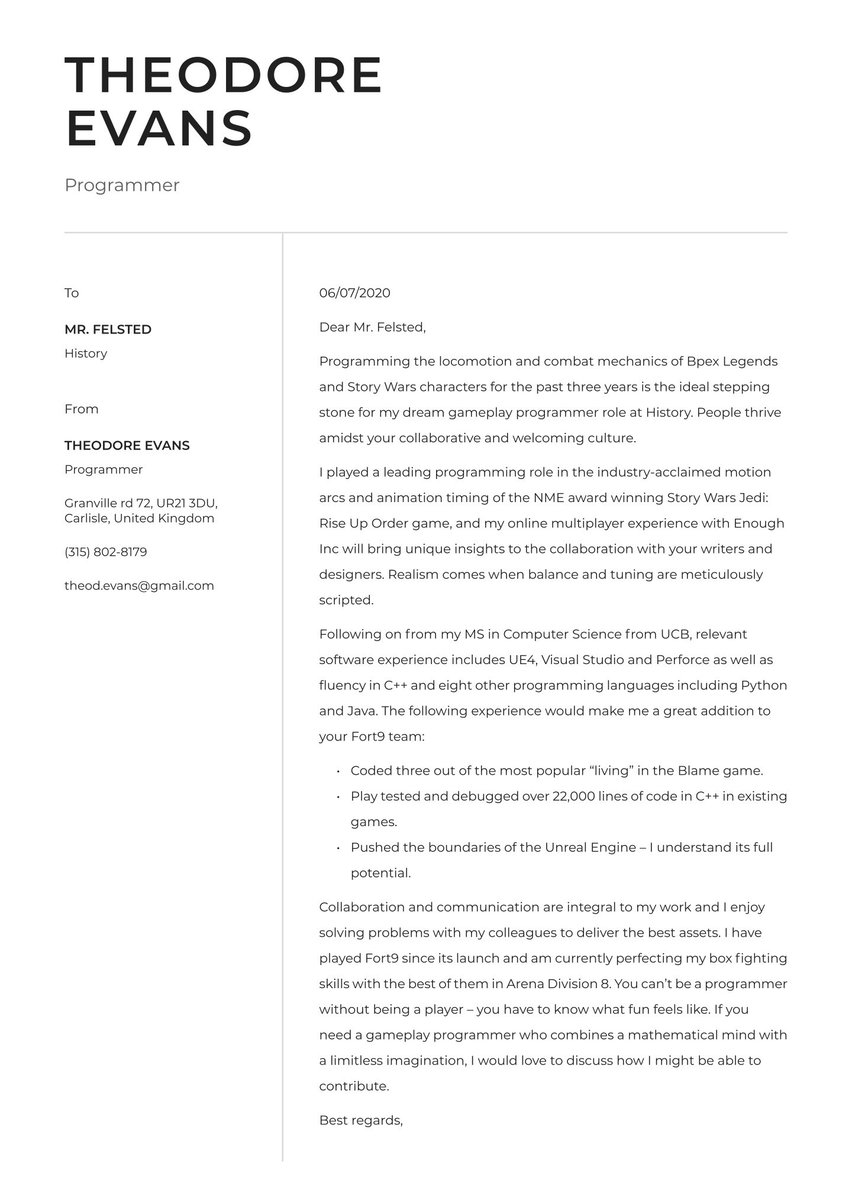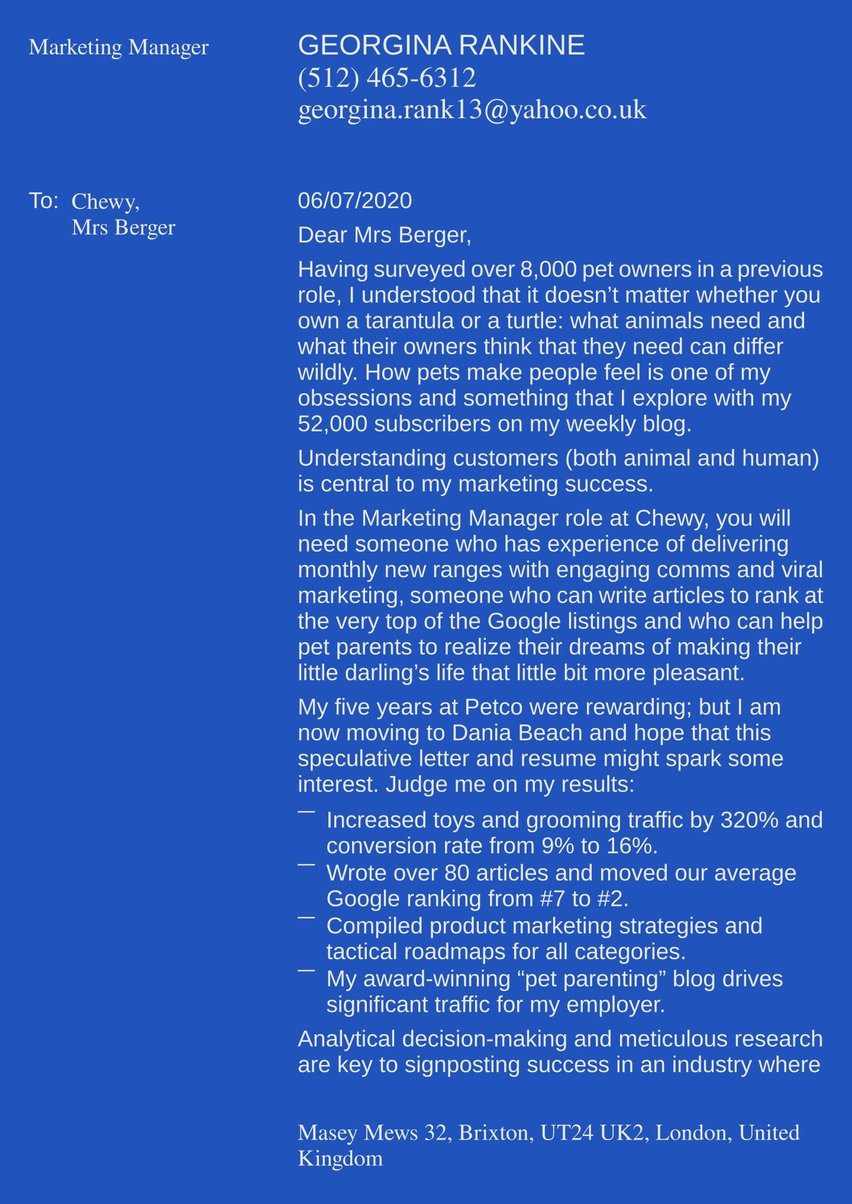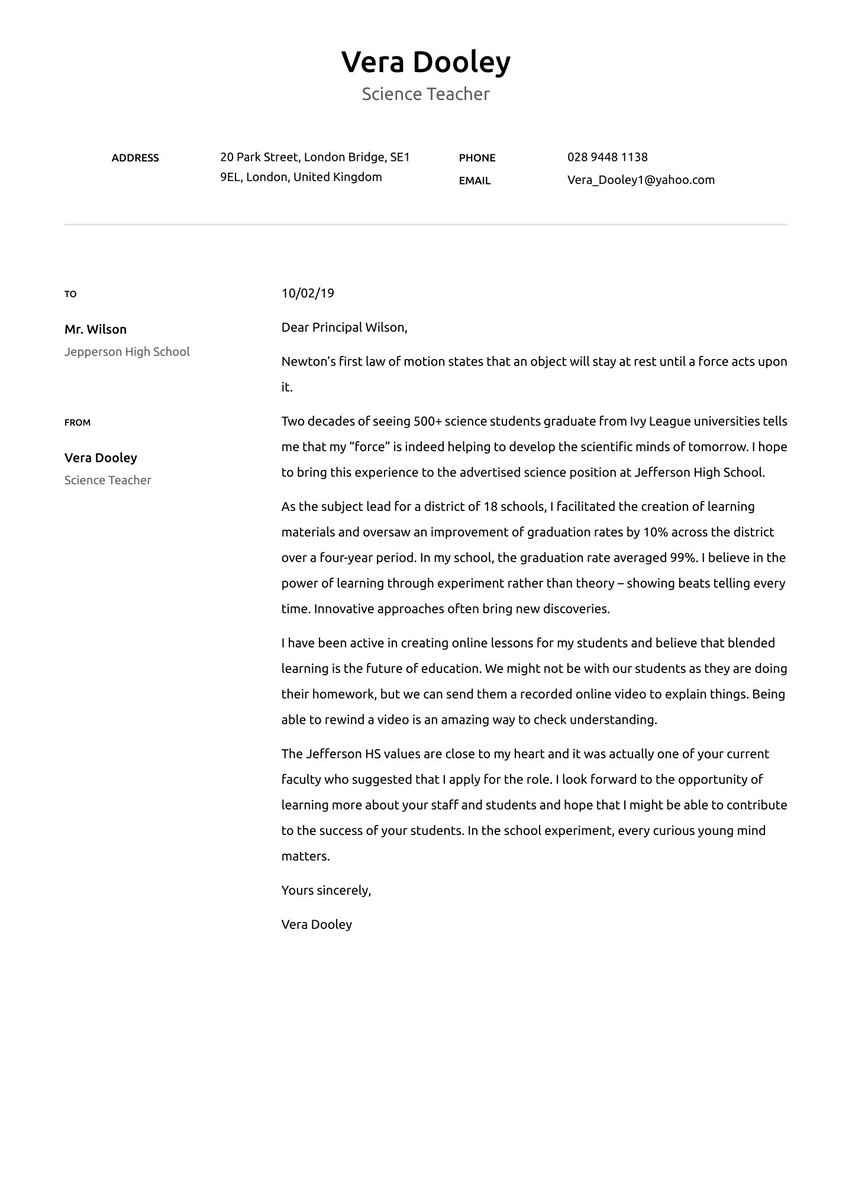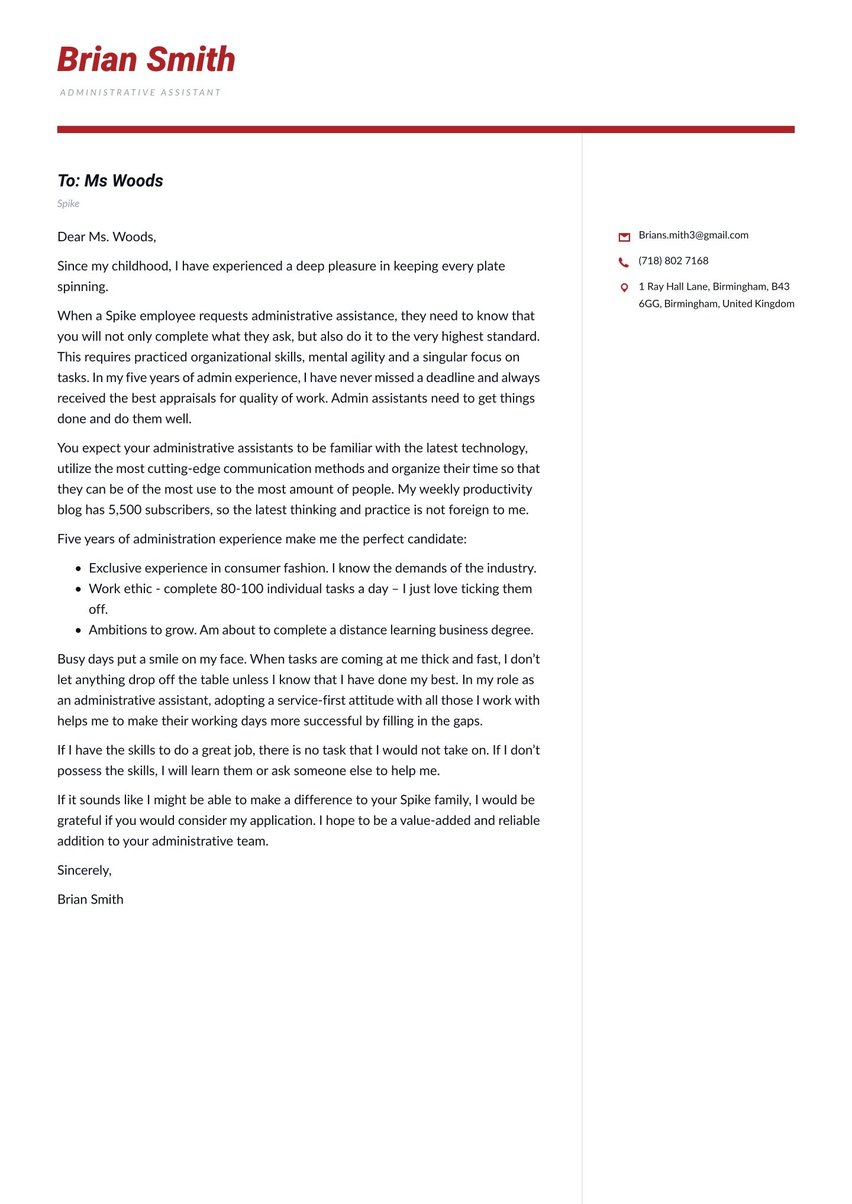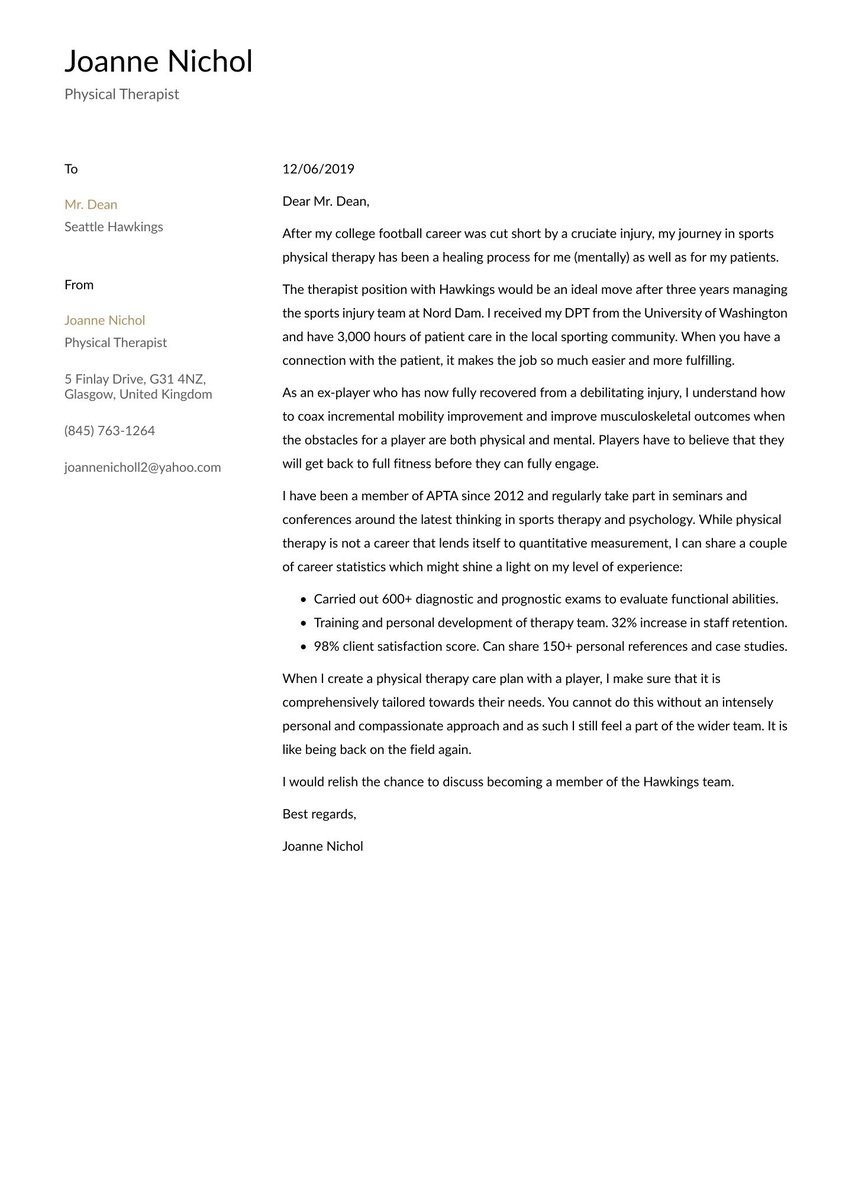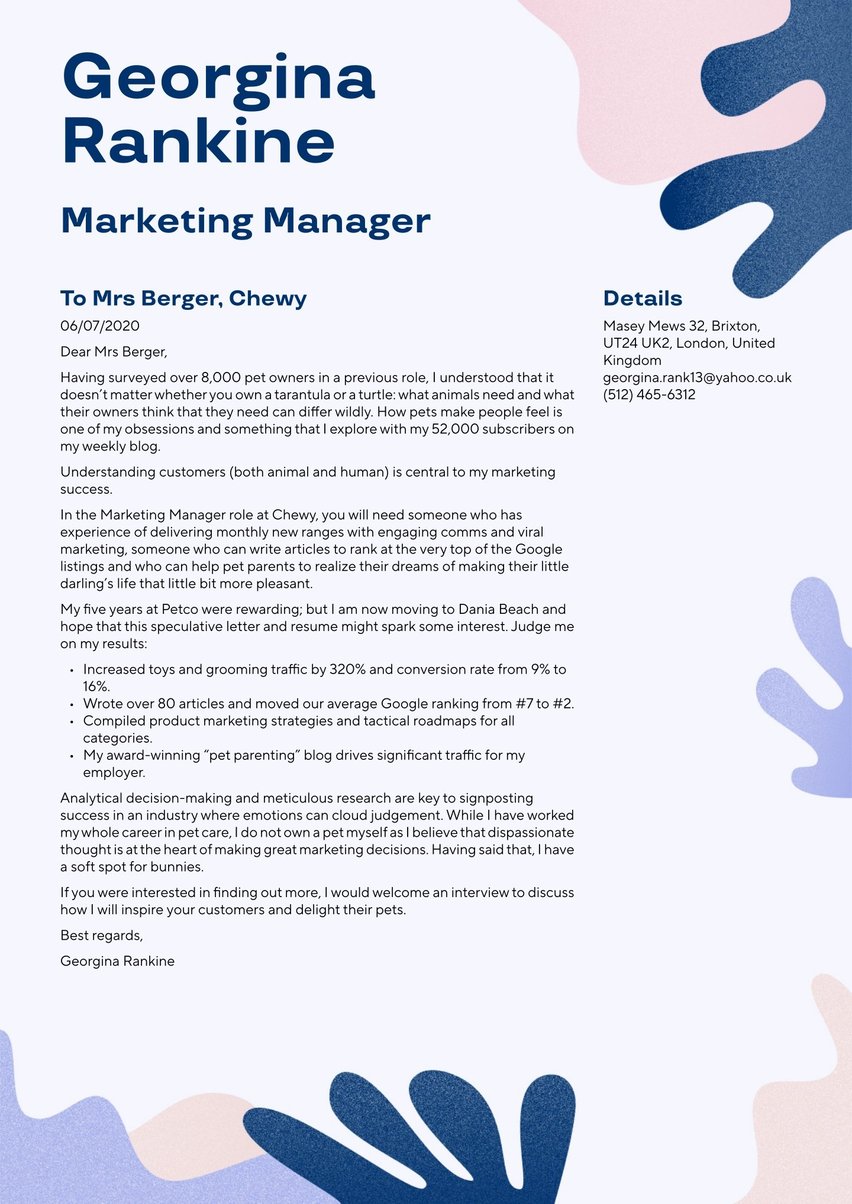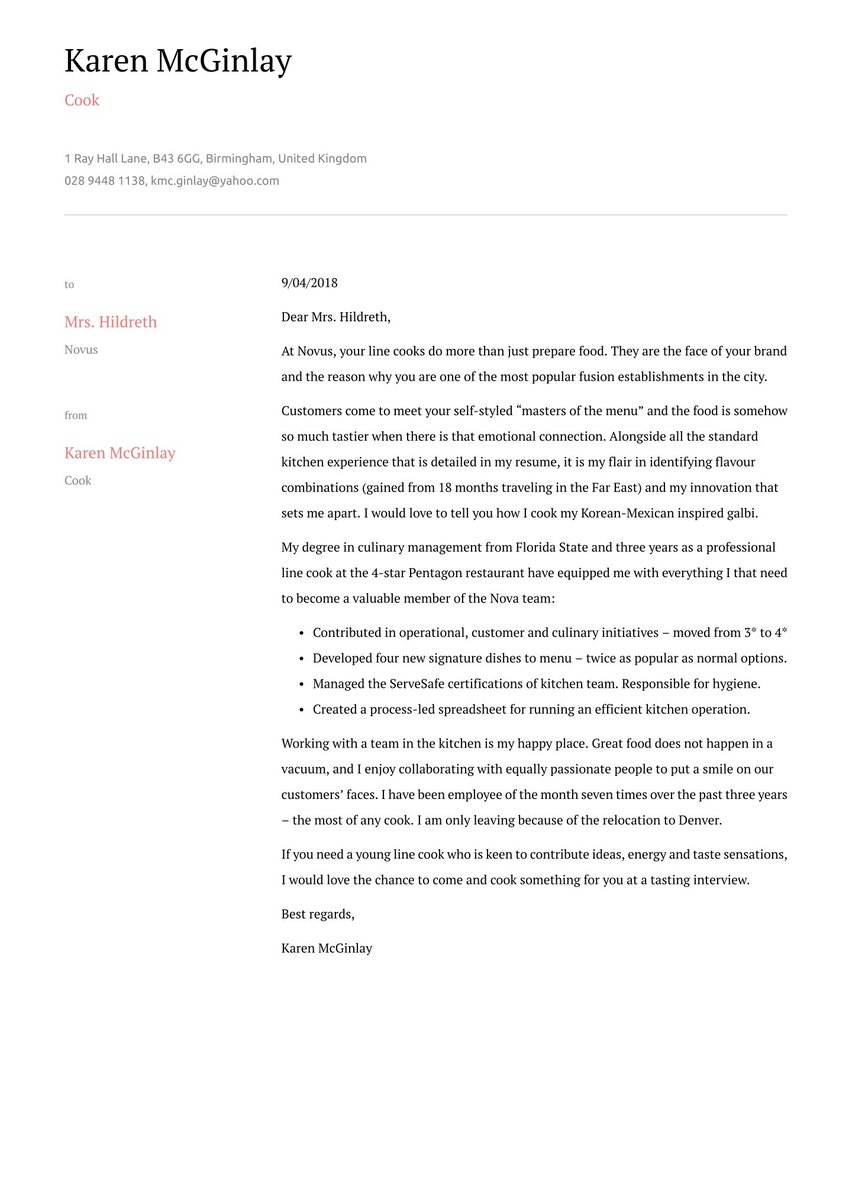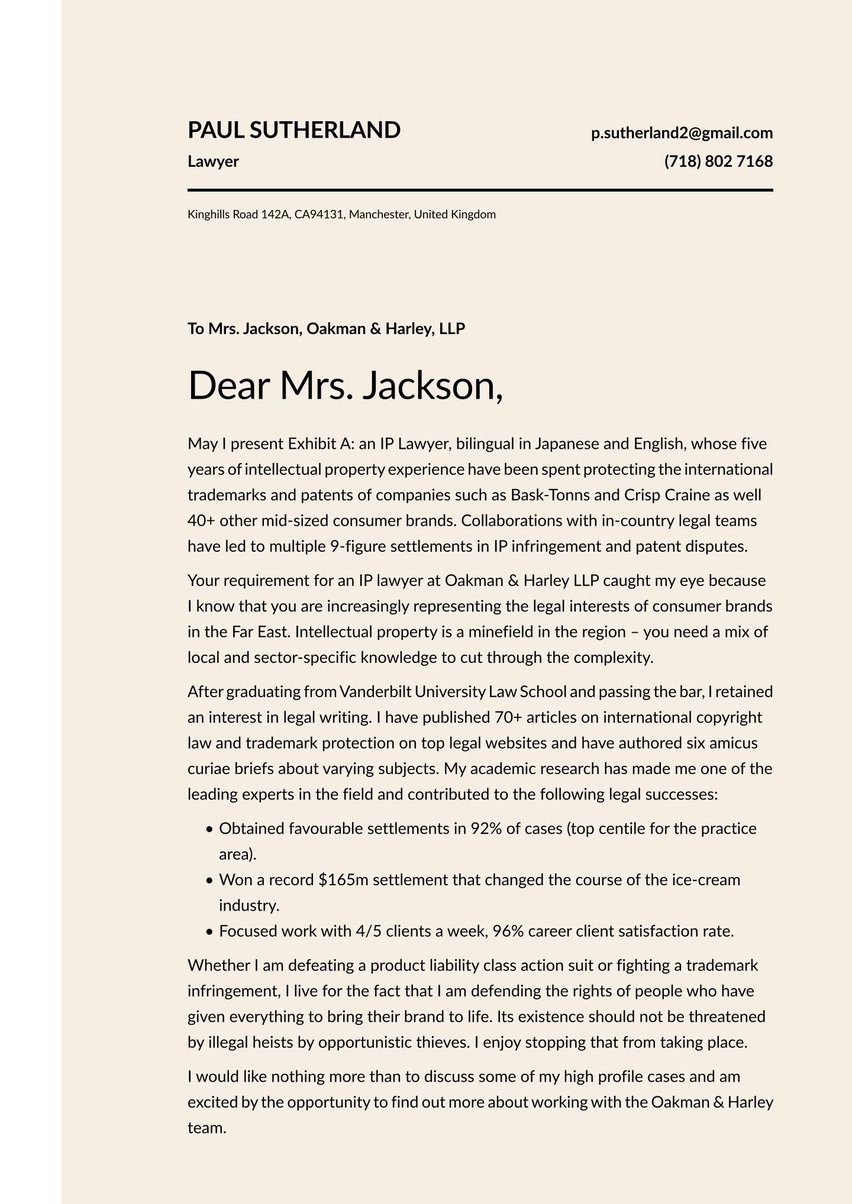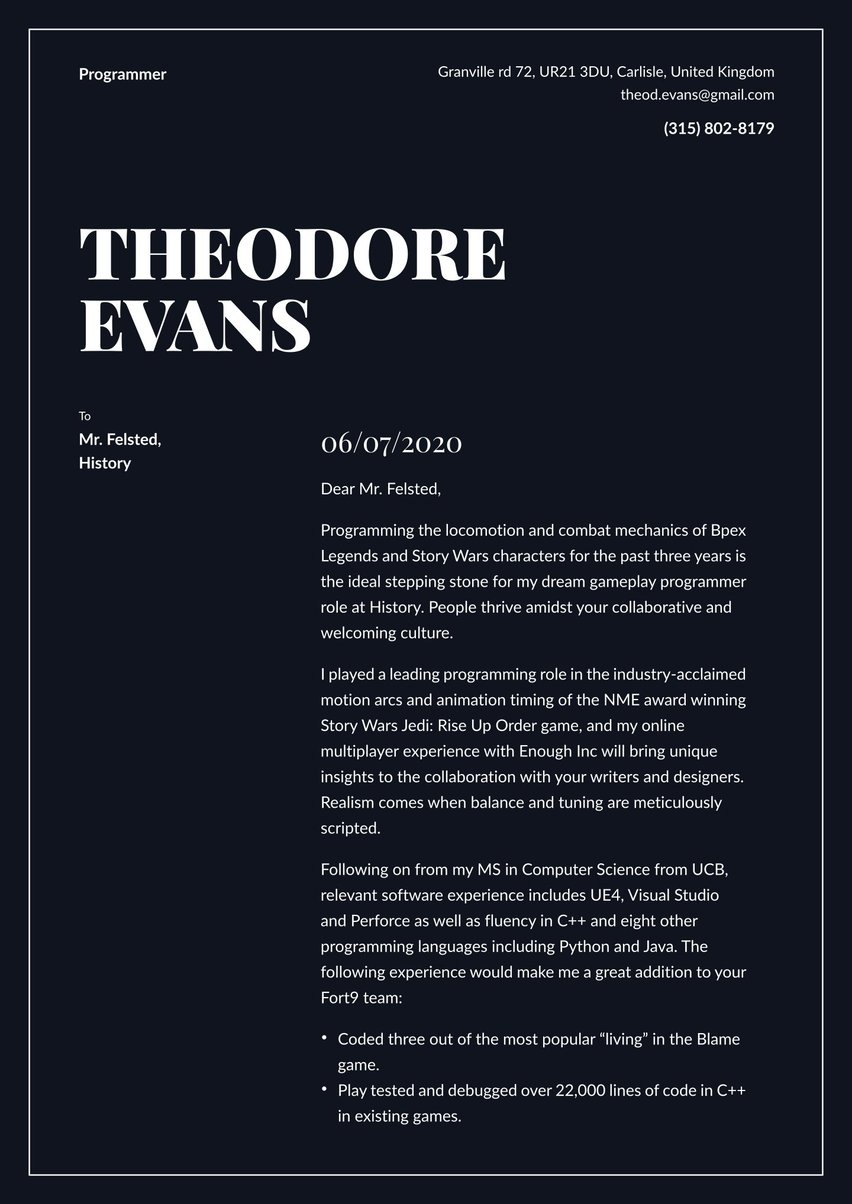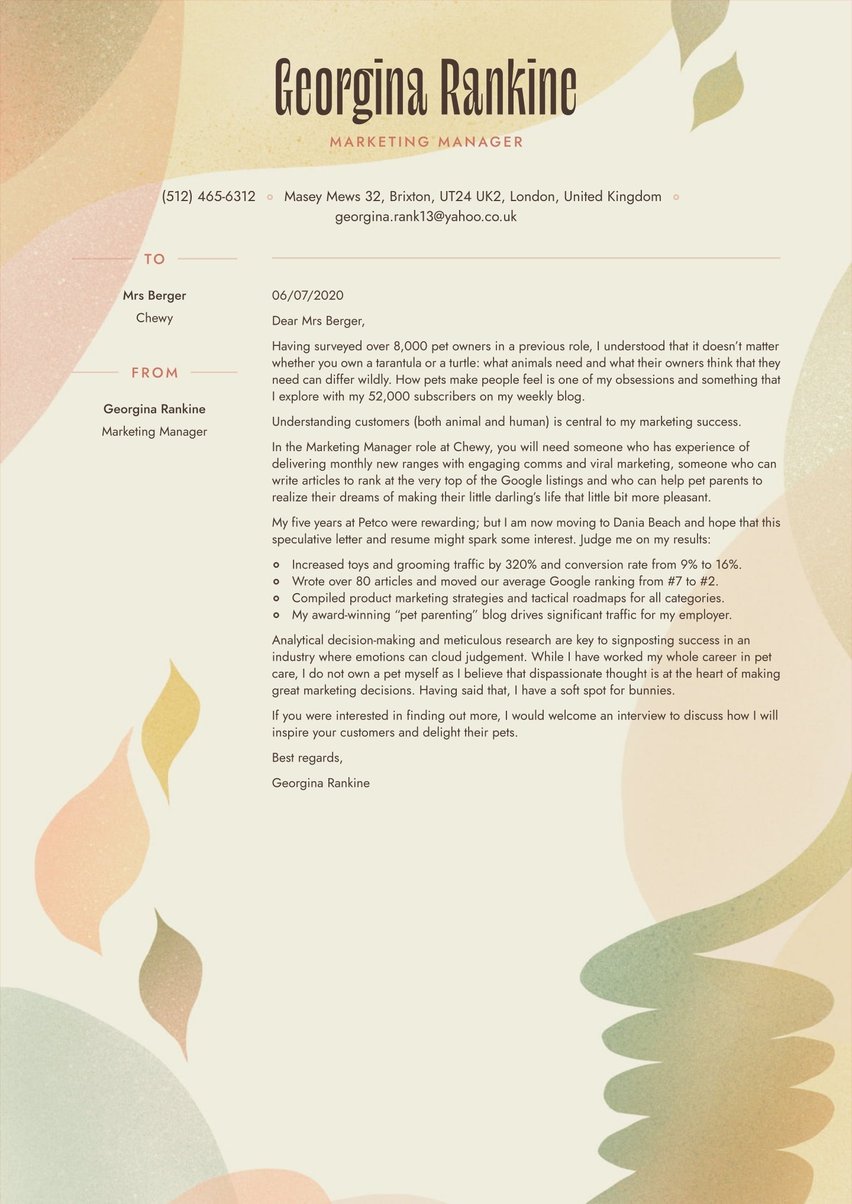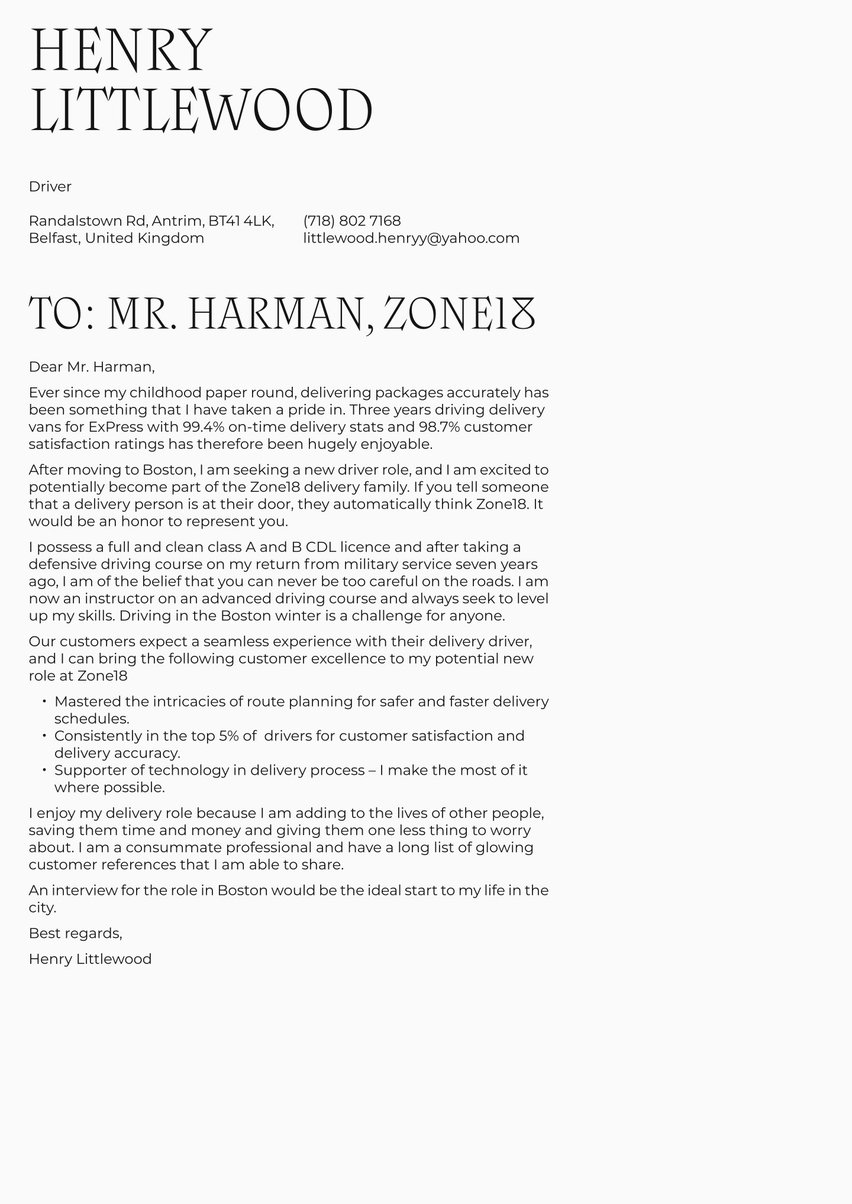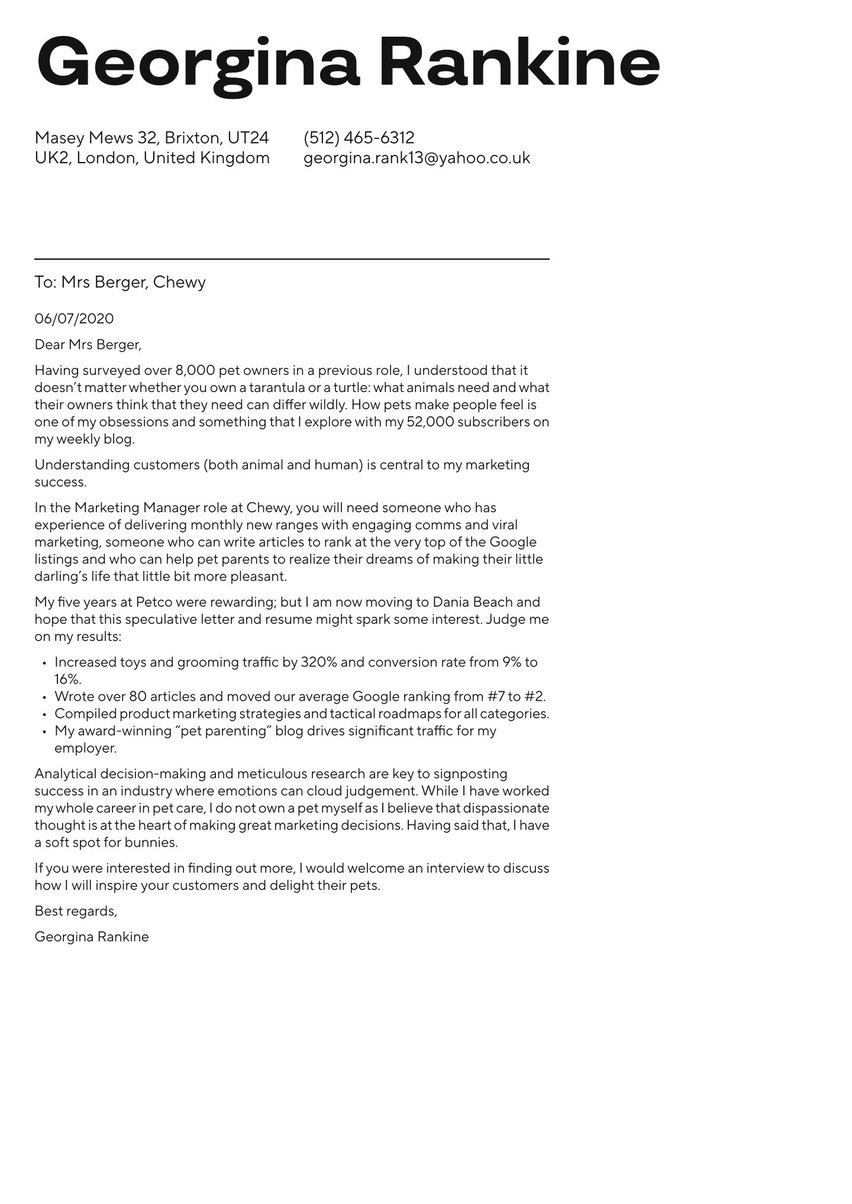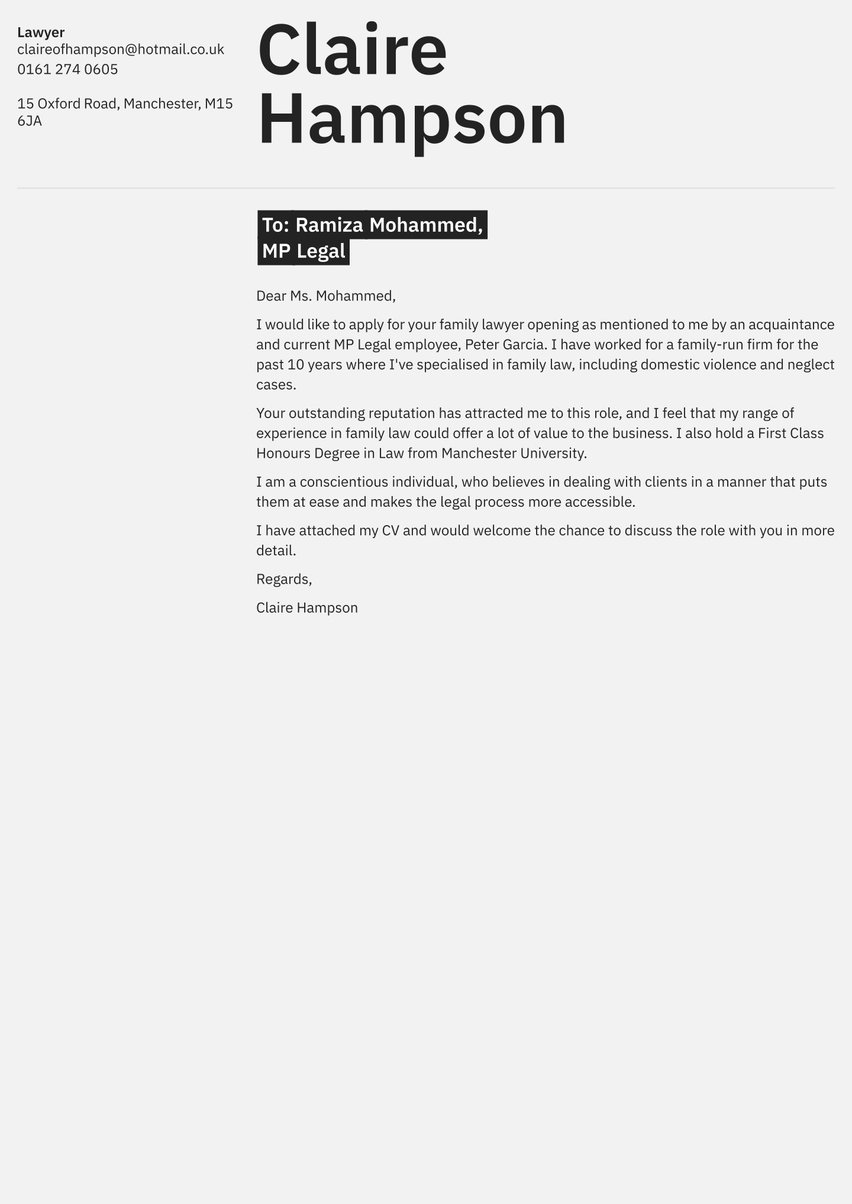Ready to take your academic career to the next level? Your PhD supervisor must understand that you have the academic qualifications and motivation to take on the toughest challenge in further education.
Your academic CV will outline your educational achievements, but your PhD cover letter needs to show that you have the personality and drive to succeed.
PhD full text-only cover letter example
Dear Dr. Jahns,
I’m excited by the prospect of carrying out my doctorate research at Avon University, exploring the sociophonetic perception of second-generation immigrants. Since the time of my undergraduate studies, I have been aware of Avon’s ground-breaking research in the field of linguistics. My fascination with this work has long inspired my hope of being part of your research team. I think the fit with my profile is excellent and would be mutually rewarding.
Since early on in my academic studies, I’ve leaned towards the psychology of linguistics. This is evidenced in the subject of my undergraduate dissertation exploring early language development in bilingual children. My tutor was impressed with the supporting research that was recognized at my BSc graduation with the Grant Hughes Prize for Exceptional Research.
While my PhD research proposal centres on bilingualism, the topic first sparked my interest while investigating monolingualism. I studied the accents of immigrants who in adolescence spoke only their adopted country’s language. It was during the completion of my Master of Research (MRes) that I noticed the relationship between the monolingual members of these communities and the wider questions and consequences arising from their sociophonetic perception. Much of the existing research that I referenced during my MRes came from Avon University.
I’m hopeful that my background in the psychology surrounding polyglotism in sociophonetics could further enrich the department and field. I hope to be able to discuss my research proposal with you soon.
Sincerely,
Yasmin Kirtzman
Sections of a PhD cover letter
Before you start writing your PhD cover letter, you need to know what to include. Let’s take a look at the elements that you need to have within this application letter now:
- Cover letter header. This part of your cover letter includes your basic details, including your name, location, and contact information.
- Greeting. Next up, make sure that the greeting you use is appropriate. This is a formal letter, so the tone you use here needs to reflect that.
- Introduction. Hook the reader’s interest by placing the most important information toward the top of your PhD cover letter.
- Body. Within the main body of your cover letter, you have the chance to share your career story. Ensure that you select the most valuable information.
- Conclusion. When you have written the bulk of the information, it’s time to conclude. You should end on a high and consider including a call to action.
- Signature. Finish your cover letter by using a polite and professional sign-off.
Each section of your PhD cover letter needs to serve a purpose. When you are writing this application letter, make sure that you think about what you want to include and what is not as important. That way, you can make sure that you get the most out of your letter.
You should aim for a one or two page cover letter as standard. Keeping things short and concise is the most logical approach. If you want to learn more about writing a cover letter from scratch, read our full guide.
Looking for some more inspiration to fuel your cover letter writing? Check out our related cover letter samples here:
Introduction of a PhD cover letter
Why do you want to study this PhD subject, and how can you demonstrate that you have what it takes to come up with a ground-breaking piece of research?
Motivation needs to come first in your cover letter. A PhD is a tremendous undertaking—if you are not laser-focused on your why, doubts may arise. Consider sharing a part of your journey leading to this point, highlighting the PhD as a logical next step. You have likely been working towards this moment for many years. Share your struggles.
Engage the hiring professor’s attention by expressing the motivation behind your PhD goals in a relatable manner.
Dear Dr. Smith,
I’m thrilled by the prospect of pursuing my doctorate research at The University of Sheffield, exploring the impact of Ancient Greek art on pop culture. Since my undergraduate studies, I have had a deep-seated interest in this field of study and have read your prior paper on the topic.
Dear Taylor,
Please let me do my PhD at UoS. I am a hard-working student with a passion for history. I’m not sure what topic to cover yet but I know that you will guide me in the right direction.
Try to be as specific as you can here. The person reading your application will have to sift through a sea of candidates.
If you want to stand out from the crowd, include results-driven points. These are statements that you back up with the results you yielded. For example, you might discuss how your previous research was cited in an academic journal.
Dear Dr. Jahns,
I’m excited by the prospect of carrying out my doctorate research at Avon University, exploring the sociophonetic perception of second-generation immigrants. Since the time of my undergraduate studies, I have been aware of Avon’s ground-breaking research in the field of linguistics. My fascination with this work has long inspired my hope of being part of your research team. I think the fit with my profile is excellent and would be mutually rewarding.
PhD cover letter body
In the body of your cover letter, follow a clear template:
- Cover your skills and experience; explain why you are right for this program
- Showcase your existing knowledge of the topic
- Explore why your PhD topic is essential to the field
- Conclude with a strong statement
- End with a call to action that piques the reader’s interest
First body paragraph: your suitability for the role (skills & experience)
The middle part of a PhD cover letter should be packed relatively densely with the details of how your past research will qualify you to take the next academic step. Don’t just list down your achievements, offer a little more information about how you got there.
Here are some of the aspects you may want to include in your cover letter:
- Your experience in the field. What prior experience do you have in this subject? Detail your education and any anecdotal experience that may strengthen your case.
- The importance of the topic. PhDs are renowned for being competitive. If you want to gain a place, you need to convey why your research area is important.
- Goals and aims. What do you hope to achieve with this piece of research? What impact could it have on the future of the field and society as a whole?
- The knowledge you have. What knowledge do you have of the sector? How have you come to this point? What have you learned along the way?
- Academic recognition. If you have any academic recognition from awards bodies, this is the place to share. Embracing external perspectives on your work is central to any PhD. Show that you seek out contrary opinions and look to inform your processes.
- Additional details. Add in any details that you are sure will support your application.
Get the tone right!
Remember that you are writing to an academic. For that reason, the tone that you use needs to be formal and highbrow. Make sure that you use the type of language that is expected of a PhD student within this application letter.
Second body paragraph(s): alignment with the university
Once you have hit the main points in the first paragraph, you need to align yourself with the university. Why have you chosen this institute to apply to? What do you know about the department, and how does your research fit into the existing work?
Take the time to research the university and learn all that you can. For example, Avon University lists the following values:
- “Motivating others to excel”
- “Transforming our ideas”
- “Making things happen”
- “Working together to achieve shared goals”
You might want to mention these within your PhD cover letter, or simply keep them in mind when you are writing this part of your application package.
Bullet-point your accomplishments!
Bullet points may help to highlight some of your key achievements. They offer the reader’s eye a break on the page.
Although bullet points don't typically belong in academic prose, they can have a useful place in a PhD cover letter. Starting with a powerful action verb, each bullet point should describe any accomplishment or contribution to past research activities. Incorporate quantifying numbers and provide context where possible.
Most PhD students will be curious as to how their work will fit into the hiring department’s overall strategy. While most of your questions should be reserved for the interview process, a carefully targeted question in the cover letter can show that you have considered the most nuanced angles of the PhD opportunity.
Tell your future supervisor what you are keen to discuss during an interview. Let the recruiting team imagine meeting you.
Since early on in my academic studies, I’ve leaned towards the psychology of linguistics. This is evidenced in the subject of my undergraduate dissertation exploring early language development in bilingual children. My tutor was impressed with the supporting research that was recognized at my BSc graduation with the Grant Hughes Prize for Exceptional Research.
While my PhD research proposal centres on bilingualism, the topic first sparked my interest while investigating monolingualism. I studied the accents of immigrants who in adolescence spoke only their adopted country’s language. It was during the completion of my Master of Research (MRes) that I noticed the relationship between the monolingual members of these communities and the wider questions and consequences arising from their sociophonetic perception. Much of the existing research that I referenced during my MRes came from Avon University.
Call to action & conclusion: Finish off strong
A powerful conclusion for a PhD cover letter might focus on the impact of your PhD work. Show that you have some real-world experience in your field and tell the supervisor why your work will move the needle.
While you cannot know the exact outcomes of your work at this early stage, it is perfectly acceptable to hypothesise. If you do not express any sense of purpose for your work in these final words, the interviewer may question your motivations.
Lastly, and maybe most importantly, say how keen you are to discuss your ideas further during an interview. Adopt a hopeful tone in your “call to action” without sounding presumptuous.
Depending on the faculty's prestige, it may receive hundreds of applications, so don’t assume that you will secure an interview. Gently say how much you would value the chance to find out more. Hopefully, the PhD supervisor will feel the same way.
Optimise for the ATS
The Applicant Tracking System (ATS) is software that filters incoming applications. The program ranks CVs and cover letters by how well they meet the criteria of the position.
Some universities may manage applications using this software. Give yourself the best odds of success by making sure that you optimise your PhD cover letter.
Review the department’s content and look at the topics highlighted. If possible, pick out keywords that you can weave throughout your cover letter.
Example:
- “Peer-reviewed”
- “Methodology”
- “Thesis”
- “Data collection”
End on an optimistic note by restating your potential value as a PhD hire, with a call to action that puts some onus on the faculty to follow up.
Look at a PhD cover letter sample conclusion:
I’m hopeful that my background in the psychology surrounding polyglotism in sociophonetics could further enrich the department and field. I hope to be able to discuss my research proposal with you soon.
Sincerely,
Yasmin Kirtzman
Key takeaways
Your PhD cover letter has two goals: to show the reader why this research is essential and to prove that you are the perfect candidate for the job. Make sure you detail your prior experience, your existing research skills, and your in-depth knowledge of the research area.
Share your journey up to this point and explore how the PhD work is merely the next step. You should also showcase examples of determination and resilience since completing a PhD is demanding.
Get started now by using our simple cover letter builder tool.
